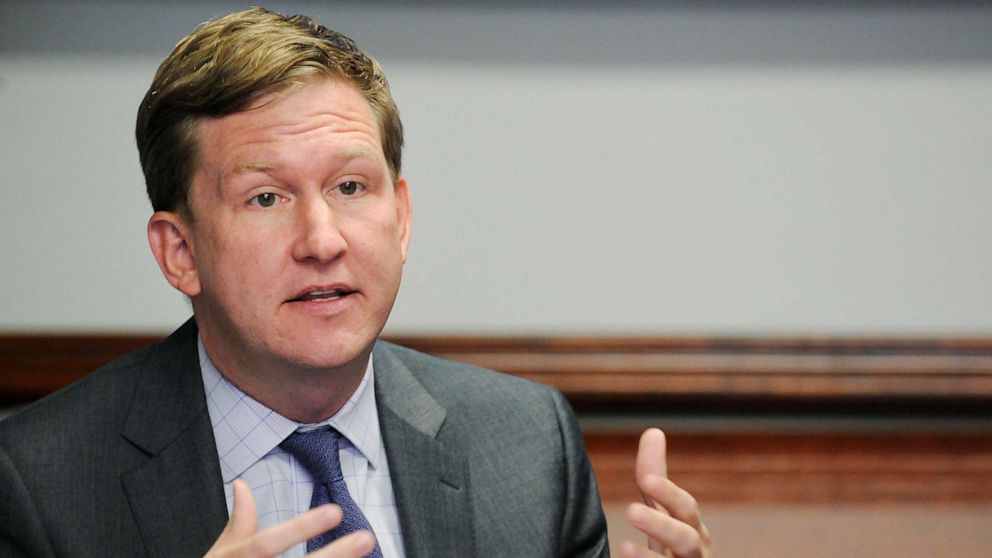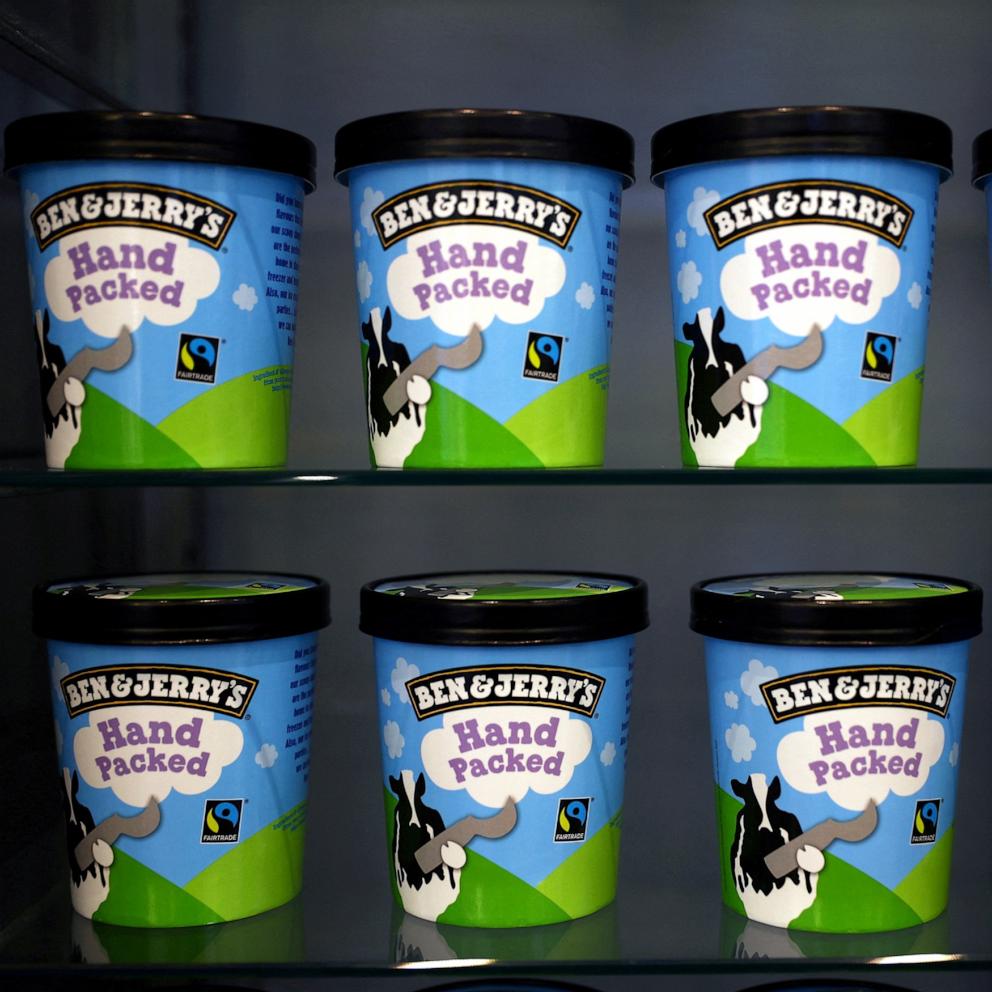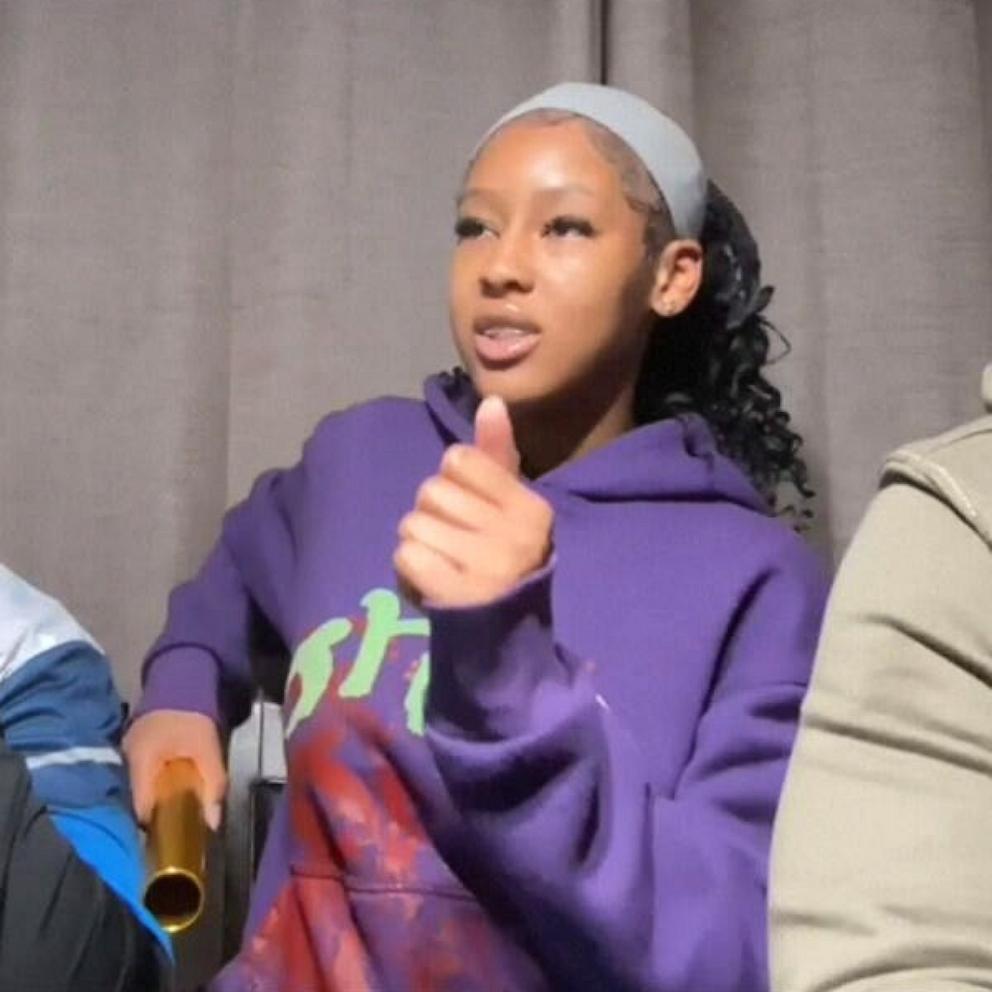Outside fundraising groups plow ahead toward 2020, with or without Democratic nominee
With President Donald Trump's reelection campaign and the Republican National Committee amassing a war chest poised to be larger than 2016's, and several of the 2020 Democrats turning their backs on independent political action committees know as super PACs, outside Democratic groups are preparing for a tough general election matchup against the incumbent, with or without a cooperative Democratic nominee.
"Presidential campaigns have said they don't want personal super PACs in the primaries, so ... we will not be involved in the primaries," Guy Cecil, chairman of Priorities USA, the largest Democratic-aligned outside group, said last week at a briefing with reporters to announce the launch of a new digital advertising campaign.
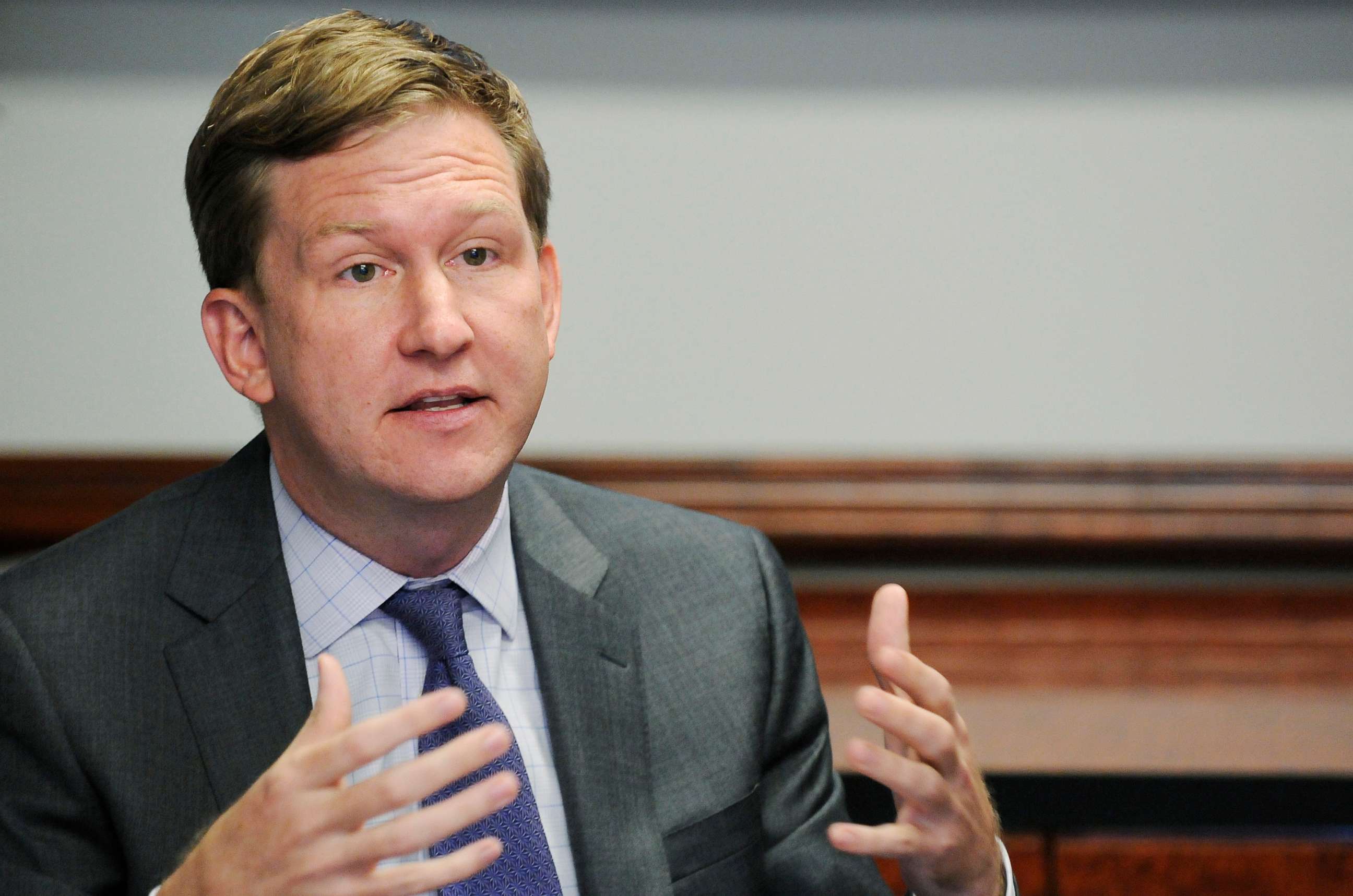
"We are an independent organization," Cecil added. "So we will be involved in this election irrespective of the nominee and the nominee's wishes … we intend to be involved in the election."
In 2016, Priorities USA's super PAC arm -- called Priorities USA Action -- spent nearly $190 million during the presidential contest, including $132 million in support of Democratic nominee Hillary Clinton.
This year the group, which is backed by some of the wealthiest Democratic donors, has already raised $23.4 million through the end of June and has secured up to $88 million in commitments, according to a statement released Monday. At this point in 2015, the organization had raised only $15.7 million.
Super PACs are allowed to raise and spend unlimited sums of money to support or oppose a political figure, but unlike traditional PACs, campaign finance laws prohibit them from coordinating with political candidates or campaigns.
Since 2011, Priorities USA, which espouses "progressive values," has been the primary outside group buoying Democrats up and down the ballot, including former President Barack Obama and Clinton. But in 2020, as a majority of the Democratic hopefuls emphasize grassroots support over big money politics, nearly half of them have disavowed super PACs, at least in the presidential primary.
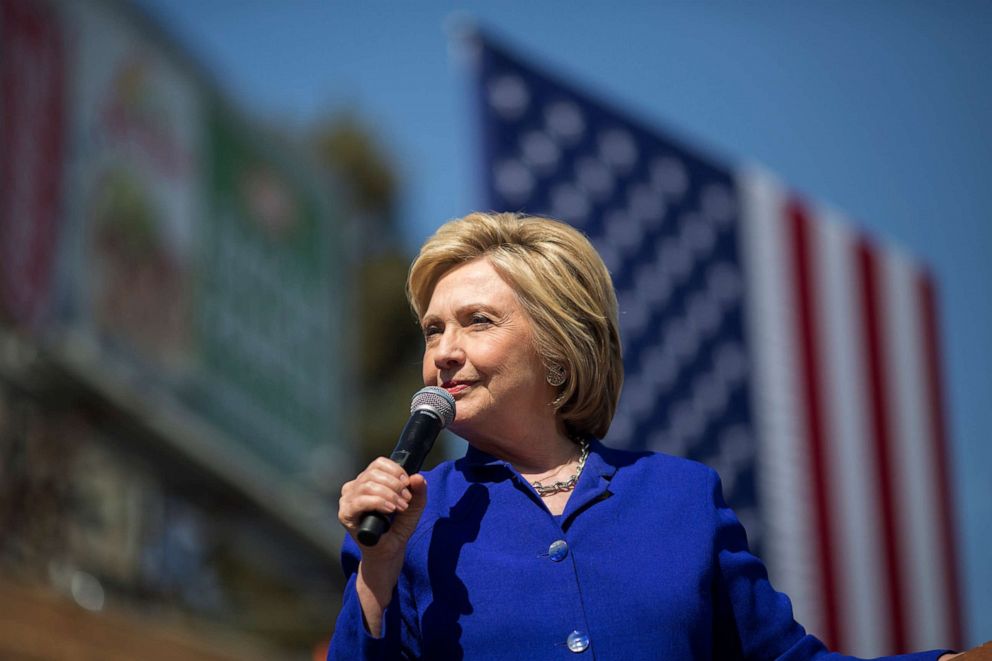
"We've reached a point where candidates have more to gain by actively opposing super PAC activity ... than they have to gain from secretly blessing it," said Adav Noti, senior director of the nonpartisan Campaign Legal Center and a former associate general counsel at the Federal Election Commission.
In this election cycle, Priorities USA has distanced itself from backing any specific candidate in the primary. But down the line, for the sole candidate at the top of the Democratic ticket, the support of a big-money group like Priorities USA could undermine the grassroots brand.
Some groups are cozier with candidates
As candidates fight over donors and resources to sustain their campaigns for the long haul, some Democrats are embracing the support of outside groups even as they vow to overhaul the campaign finance system.
Among the front-runners in fundraising, Sens. Bernie Sanders, I-Vt., and Elizabeth Warren, D-Mass., both progressive stalwarts who have built their political brands by criticizing the influence of money in politics, have benefited from the help of outside money.
Our Revolution, the group Sanders founded to continue to push his agenda after his primary campaign against Hillary Clinton, has served as a force multiplier for his campaign, setting up debate watch parties to "cheer Bernie on," gathering supporters in early voting states for meetings with campaign surrogates, and organizing efforts across the country to pressure lawmakers to support his "Medicare-for-All" bill.
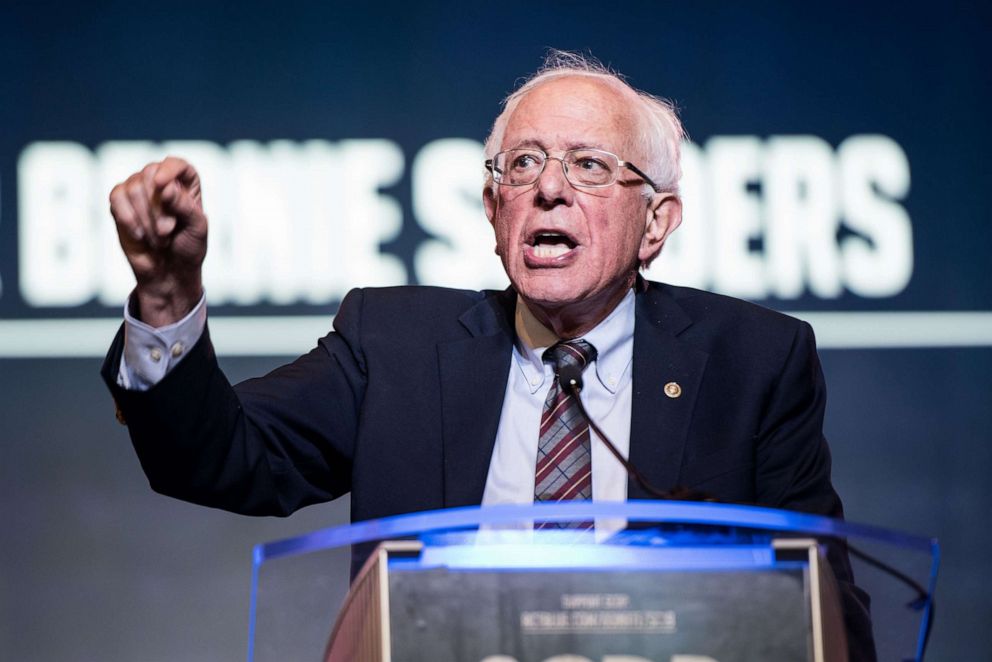
"There's a lot of energy around Bernie and around the progressive political movement generally," Our Revolution executive director Joseph Geevarghese said, adding that the group would work "adjacent" to the presidential campaign. "What we're doing is helping channel that in places that might not be Iowa."
Formed as a tax-exempt 501(c)(4) organization, Our Revolution can accept unlimited contributions without having to disclose donors. While it's technically a "social welfare" organization, Our Revolution can conduct some candidate-related work as long as it makes up less than half its activity. The group has argued that its grassroots network of small-dollar donors, along with its disclosing every donor who gives more than $250, sets it apart from the dark-money groups that accept unlimited sums of money without revealing contributors.
The Sanders campaign did not respond to requests for comment about his relationship with Our Revolution.
The Progressive Change Campaign Committee, a political action committee founded by a pair of activists in 2009, supported Warren's first run for the Senate, and has worked closely with her throughout her political career.
The group, with its email list of roughly one million subscribers, has worked to promote the "Elizabeth Warren wing" of American politics, endorsing Warren's economic proposals and working to train thousands of candidates for all levels of political office since 2009.
The committee sells Warren T-shirts, stickers and even a comic book, while helping to raise money for Warren online. It recently launched a website to promote the stories of voters who have flipped their support to Warren from other candidates.
"We try to find ways that we can play a unique role through grassroots activism," Adam Green, co-founder of PCCC, told ABC News.
The Progressive Change Campaign Committee's federal work and efforts supporting Warren are subject to spending and contribution limits, though some of its accounts and branches are subject to different rules.
One offshoot focused on organizing and training progressive candidates can accept unlimited donations. That group, which discloses its donors, is not conducting work on Warren's behalf, according to Green.
To some campaign finance experts, the relationships between these groups and the presidential candidates aren't always in keeping with the spirit of the candidates' criticisms of the campaign finance system.
"You're seeing that pretty much all the major candidates have problems when it comes to money in politics," said Paul S. Ryan, the vice president of Policy & Litigation at Common Cause, a nonpartisan government watchdog organization. "They have some gaps [between] their campaign stump rhetoric and their actual practices trying to run competitive presidential campaigns."
Other Democrats have struggled to keep fundraising efforts in line with their vision for campaign finance reform, as they work to sustain their campaigns through a grueling primary.
Sen. Cory Booker, D-N.J., has disavowed Dream United, a group organized by Booker's former Stanford University classmate, Steve Phillips, a San Francisco lawyer who led a similar effort in 2008. However Washington Gov. Jay Inslee has not taken any steps to distance himself from Act Now on Climate, a group led by former aides that has spent roughly $1.5 million this year to support his candidacy, according to FEC filings. Former Maryland Congressman John Delaney also has a super PAC backing his Iowa-focused presidential campaign.
Warren, for her part, has distanced herself from PAC contributions.
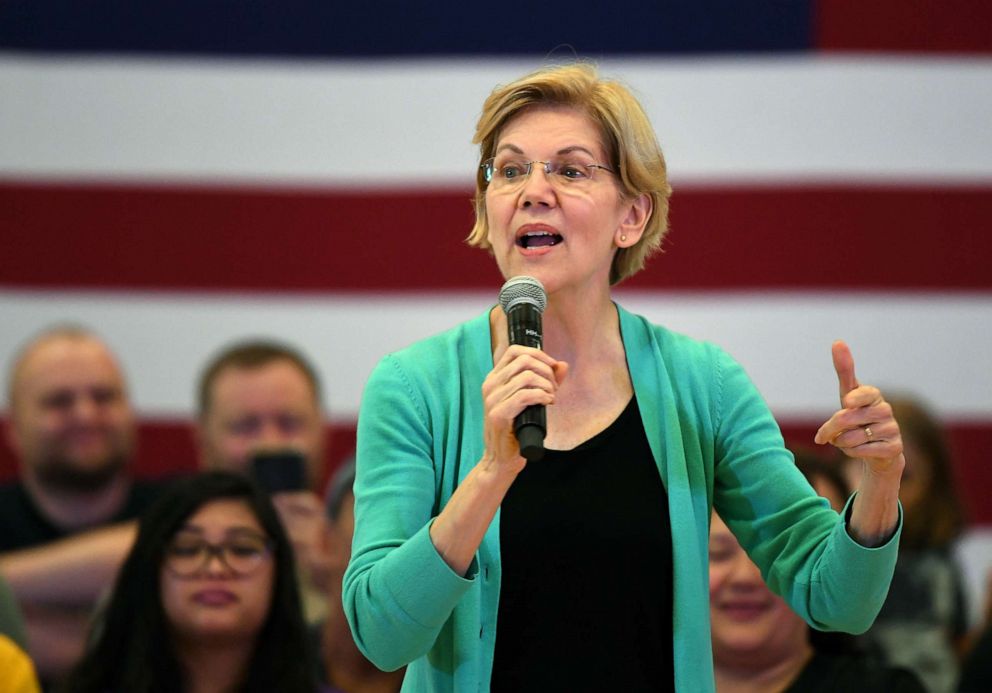
"Elizabeth has disavowed Super PACs, isn't taking any PAC [money] or money from federal lobbyists in this campaign, and isn't giving special access to people who can afford to attend closed door fundraisers," a campaign representative told ABC News. "She does not believe that the Democratic nominee should be determined by who can line up the most support from billionaires and millionaires, but she does support having grassroots organizations having their voices heard in this process."
How the 2020 landscape differs from 2016
With Democrats preparing for an expensive primary fight, Priorities USA and other outside groups shunned in the primary are working to fill the fundraising void between Trump and Democrats ahead of the Democratic National Convention in 2020.
The Trump campaign, with the help of a fundraising arrangement with the Republican National Committee, raised $105 million in the second quarter of 2019, a prolific effort that will help the campaign prepare for the eventual Democratic nominee and the general election.
"We need to do everything we can to ensure that we aren't waiting until the convention to start making the case against Trump," Josh Schwerin, a senior strategist at Priorities USA, told ABC News. "This cycle, it's our job to fill the gap while most of our party is focused on the primary."
"We will continue our work to defeat Donald Trump no matter who the nominee is," he added.
Priorities USA's affiliated 501(c)(4) nonprofit organization launched its "Let's Be Honest" campaign on July 23 to focus on Trump's economic agenda. The group announced it will spend $100 million in key states core to their reelection strategy, including Wisconsin, Florida, Pennsylvania, and Michigan. Priorities USA officials say they will invest $100,000 in digital advertising in the campaign's first week, then ramp up their digital spending to $300,000 to $450,000 per week for the "foreseeable future."
But the Democratic National Committee is also not just standing idly by as the general election nears: Early last week, DNC chair Tom Perez joined local party leaders in Milwaukee, the site of the 2020 convention, to take aim at Trump's economic record during a multi-week campaign focused on the middle class across key battleground states.
Experts said that neither the efforts of the Democrats or their affiliated outside groups were surprising, despite the stances and pledges of many of the candidates.
"It's always a bit of a Catch-22," Meredith McGehee, the executive director of nonpartisan watchdog group Issue One, told ABC News. "The current system is so rigged that if you make a decision not to play by the current rules, you are likely dooming yourself to defeat, and you need to be a little careful."
Trump, who took office promising to "drain the swamp" in Washington, has the support of two closely-tied outside organizations, the nonprofit America First Policies and the super PAC America First Action. Between them, the organizations have taken in multiple seven-figure checks from some of the wealthiest GOP donors including Las Vegas casino mogul Sheldon Adelson, and have spent at least $36 million since Trump took office in support of the president's agenda and reelection.
"Once the Democratic nominee is selected, we shouldn't be surprised if they [the Democratic nominee] fundraise for their campaign differently, because they are going up against a president who has amassed a massive campaign war chest," Brendan Fischer of the Campaign Legal Center told ABC News, suggesting that the nominee is likely to welcome big-money support going into the general election.
